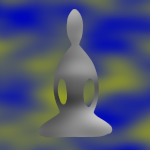Dear Friends,
I have noticed a particularly sticky thought pattern. It’s the one that says to me, “You’re not good enough. You should be doing more. You always lose your keys – how can you be that disorganized. You’ll never be able to do that thing, so why even try.” And on and on.
Mark Coleman wrote a whole book about the inner critic. (See Make Peace With Your Mind: : How Mindfulness and Compassion Can Free You from Your Inner Critic)
This is a very painful pattern, and it seemed like I became even more aware of this pattern when I started meditating. (Which, of course, cued even more criticism, “You can’t even meditate well! Geesh!”) This voice is a constant buzz – comparing everything “me” to some invented ideal – the one who is skinnier, fitter, smarter, always organized, and effortlessly perfect. And the “me” never can measure up.
And this is a very old pattern. One that has been around for decades and decades. This critic has a lot of practice. And maybe at some point, there was some perceived usefulness in the pattern, so my tendency is to give this voice a lot of credibility and authority that it really doesn’t deserve.
But as Mark’s book title suggests, mindfulness and compassion can help.
The first thing that was useful was to learn I wasn’t the only one who had this strong critical narrative. I’m pretty sure we all experience judging of ourselves and others.
It also helps to recognize that these patterns are conditioned – from family or teachers or friends. And our culture of advertising and curated news feeds.
We can allow the commentary to pass by with a neutral comment. “Thanks for your opinion, but I got this.”
Sometimes we might need to offer a more “fierce compassion” – like a firm but loving parent dealing with a petulant child. “That’s enough.” or “I’m not going to go there.”
We can feel the impact in the body. Once we start to grok on how this is really painful, the mind may start to realize this isn’t such a good approach.
We can count judging thoughts. Diana Winston tells a funny story about this practice:
I once gave this exercise to some twelve-year-old girls in a dharma group. I said, “Why don’t you practice counting the judgments you experience in your daily life?” I didn’t see the girls until a month later, and the first thing one of them said to me was, “One thousand six hundred and twelve.” I said, “What?” I didn’t know what she was talking about. And she said, “I’ve been counting judgments.” Apparently she went to school and started counting her own judgments, and then she started counting her friends’ judgments. Then anytime anybody in her classes made a judgment she would count it out loud. She spent the entire month at school counting judgments. I thought it was just amazing that she was that mindful and persistent, although possibly annoying to her friends!
Diana Winston. (2002, February). From Self-Judgement to Being Ourselves. Insight Journal.
https://www.buddhistinquiry.org/article/from-self-judgement-to-being-ourselves/
Humor is a good way of responding to this too. We can give our critical voice a name or a character. Mine looks like a little blue muppet-like bird that sits on my shoulder and cheeps at me. Sharon Salzberg says she calls her voice “Lucy” after a Peanuts cartoon.
That Lucy voice was so dominant in my earlier life. My meditation practice has given me some tools for working with Lucy. Naming her means that when she appears, I can greet the inner critic thoughts with, “Hi, Lucy,” or “Chill out, Lucy.” That’s much different and much healthier than, “You’re right, Lucy. You’re always right.”
The Myths of Love: A Conversation with Sharon Salzberg. Be Here Now Network.
https://beherenownetwork.com/myths-love-conversation-sharon-salzberg/
Sharon coincidentally posted that Peanuts cartoon to Twitter on Friday. Last January she posted this related advice:

We can write down our “top 10” list of judgments, and then challenge their truthfulness. (“You always lose your keys.” “Well, today I didn’t misplace them. They were in hanging up on the board like usual, so I don’t always lose them.”) — This is a good one to do with the should/always/never messaging.
And we can realize that the critic will pop up in some common situations. Jeanne calls this the “of course” practice. “Of course there’s going to be self judgment because you tried something new today.”
And we can cultivate a practice of kindness to replace these sticky thoughts. “I am a terrible meditator… and may I be happy and peaceful.” You deserve this kindness as much as anyone else.
Here’s a guided meditation by Diana Winston, which invites kindness when judging thoughts arise:
A Meditation on Your Self-Critical Voice
https://www.mindful.org/a-meditation-on-your-self-critical-voice/
And an apt poem from Danna Faulds, “Self-Observation Without Judgement,” where she says, “Love, not judgment, sows the / seeds of tranquility and change.” You can read the whole poem here:
http://aplacetobreatheblog1.blogspot.com/2011/07/self-observation-without-judgement.html
The critic still natters away, and there are days where it is very painful. But I no longer believe this voice as much. I’m starting to hear a kinder, caring voice of discernment that can guide me.
What tendencies and strategies do you notice? Feel free to comment or email.
With care,
Andrea

When a critical thought come to mind I open the front door, I open the back door.. I acknowledge the thought and let it go out the back door. As a teacher told me “Do not invite it for tea”.
Andrea, thank you so much for these supportive emails.
Thanks for this visualization of letting the critical though just flow right through!
Today, I received an email with this quote! 🙂
“In zazen, leave your front door and your back door open. Let thoughts come and go. Just don’t serve them tea.”
Shunryu Suzuki